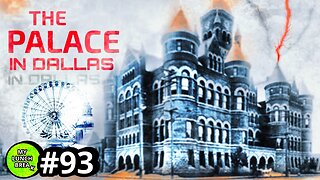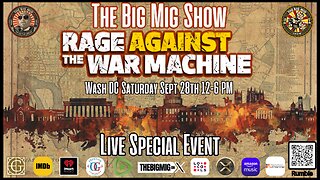"Paul Clifford", Chapter 1, by Edward Bulwer-Lytton
Say, ye oppressed by some fantastic woes,
Some jarring nerve that baffles your repose,
Who press the downy couch while slaves advance
With timid eye to read the distant glance,
Who with sad prayers the weary doctor tease
To name the nameless, ever-new disease,
Who with mock patience dire complaints endure,
Which real pain and that alone can cure,
How would you bear in real pain to lie
Despised, neglected, left alone to die?
How would you bear to draw your latest breath
Where all that's wretched paves the way to death? -Crabbe.
----
haud passibus aequis = not with equal pace, i.e. slower
I've never before heard the term "deal table", but apparently "deal" is a British word for sawn pine wood. So a table made of pine wood
I've also never encountered the term "tester bed" before: a four-poster of moderate height with a canopy supported on a frame
phthisical: of, relating to, or affected with or as if with pulmonary tuberculosis
celerity: swiftness of movement
Footnotes!
"tannies today may be smash tomorrow": what is of no value now may be precious hereafter
colquarren: neck
Now some personal comments:
Not being from the UK, I'm not entirely sure of some of these pronunciations. Unfortunately, it starts with the first character we meet. Dummie. Wut? As in a stupid person? Or is that some Celtic name that has some other pronunciation? I have no idea. And the accents of characters, while written into the text, it's still not always obvious what it is supposed to be. And while there are few other recordings of this story here on youtube (very few), they seem to be by other Americans who don't seem to know any better than I do. *sigh* There's nothing from a google search to suggest it as a real first name, so there's absolutely no hints anywhere for me to go off of for pronunciation. All I can do is go with the seemingly obvious pronunciation. If you are familiar with these names and accents and know that I got it horribly wrong, let me know in the comments and I'll go re-record to correct it.
We'll discover later that Dummie's last name is Dunnaker, which in the late 19th century the majority of families with that name apparently lived in Worcestershire, in the West Midlands.
There aren't even any good websites discussing this book in any useful detail, so no hints by any other means either.
There is the one point where Dummie uses "axes" for "asks". The use of "axe" for "ask" goes all the way back to Chaucer's time, but was largely gone by Shakespeare's time. It appears to have been most common in Wessex pre-Shakespeare, which does not comport with the West Midlands idea above. ("Ask" appears to have come from northern England.) That said, this story is set in the French Revolutionary period, long after it would have been so distinctive to just Wessex, and indeed, long after you might have expected its use to have died off in England altogether. So even though that sounds like it should be a hint as to what dialect to use, unfortunately it really isn't.
"Track up the dancers" is a slang term going back to the 17th century. I found an item in The Mirror suggesting it is used in Newcastle. Don't know if that's the only place it is used, or just an example of a place it is used.
For all the times I had to repeat that sentence with the word "desaving" during recording, it was not until I got to the editing that I finally figured out it is supposed to be "deceiving".
I feel like "and she says, says she," kind of structure should identify the dialect, but I don't know UK dialects well enough to know where that manner of speaking is used.
The author really does hang us out to dry on the dialects or accents he uses. As to the author himself, his father was from Norfolk, his mother from Hertfordshire. But his father died when he was 4 years old, and his mother moved the family to London, so one would expect his own accent would be typical of early 19th century London, or maybe Hertfordshire.
It appears I may have bitten off more than I chew with this one, at least as far as any attempt at voice acting goes.
Edgar Allan Poe was writing at the same time as Bulwer-Lytton, yet Poe's writing style, aside from an occasional obsolete word by modern standards, is perfectly comfortable for the modern American reader. Bulwer-Lytton's style, certainly in the first chapter here, feels like it was written 200 years ago, at least for me as an American. Which begs the question, how does it sound to the British listeners in the audience?
The picture used is "London Slums" by Gustave Doré
This file comes from Wellcome Images (https://wellcomecollection.org/), a website operated by Wellcome Trust, a global charitable foundation based in the United Kingdom. Refer to Wellcome blog post (https://web.archive.org/web/20150815054440/http://www.wellcome.ac.uk/News/Media-office/Press-releases/2014/WTP055466.htm).
To follow along: https://www.gutenberg.org/files/7735/7735-h/7735-h.htm#link2HCH0001
-
 LIVE
LIVE
Right Side Broadcasting Network
3 days agoLIVE REPLAY: President Trump Delivers Remarks in Prairie du Chien, WI - 9/28/24
4,582 watching -
 2:59:48
2:59:48
Jewels Jones Live ®
1 day ago“TARGETING TRUMP’S LIFE” | A Political Rendezvous - Ep. 93
129K41 -
 21:20
21:20
MYLUNCHBREAK CHANNEL PAGE
20 hours agoThe Palace in Dallas?
114K60 -
 59:56
59:56
Trumpet Daily
1 day ago $13.48 earnedSwooning for Kamala Didn’t Work - Trumpet Daily | Sept. 27, 2024
93.9K49 -
 1:05:58
1:05:58
Tate Speech by Andrew Tate
20 hours agoPETER PAN PEANUT BUTTER ALERT | EPISODE 11
210K133 -
 26:51
26:51
Michael Franzese
1 day agoThe Moment That Changed My Life Forever...
115K33 -
 3:48:28
3:48:28
The Big Mig™
1 day agoRage Against The War Machine Live in Washington DC
92.3K20 -
 1:41:25
1:41:25
Tactical Advisor
20 hours agoInaugural Show | Vault Room Podcast
89K16 -
 2:00:13
2:00:13
I_Came_With_Fire_Podcast
1 day ago"The Truth About China’s Hidden Influence: From Information Warfare to Military Power"
74.1K17 -
 16:00
16:00
Josh Pate's College Football Show
2 days ago $14.78 earnedUGA vs Alabama - Josh Pate's Preview & Prediction
100K5